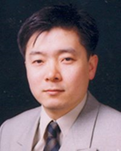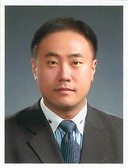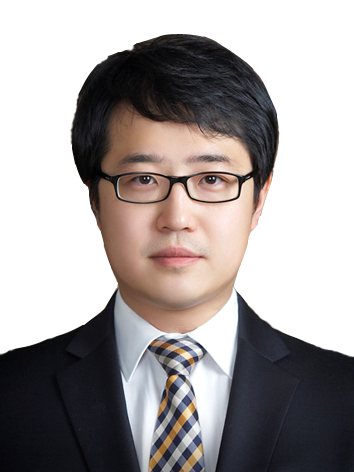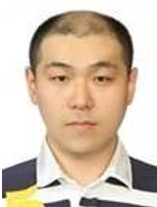- Built Environment
-

Urban planning meets the requirement of urban human-biometeorology: Urban planning measures for a local reduction of severe human heat stress PROF. MAYER, Helmut Albert-Ludwigs University of Freiburg, Germany Current position: retired Professor, Chair of Environmental Meteorology, Albert-Ludwigs-University of Freiburg, Germany; Educational Background: Study of Meteorology, Ludwig-Maximilians-University of Munich, Germany (1966-1971); Research experience since completing studies: Head of Meteorological Institute, Albert-Ludwigs-University of Freiburg, Germany (October 1992 - September 2015); Habilitation in Forest Meteorology and Climatology, Ludwig-Maximilians-University of Munich, Germany (July 1985); Research fellow, Chair for Bioclimatology and Applied Meteorology, Ludwig-Maximilians-University of Munich, Germany (1974-1992); Dr. rer. nat. in Meteorology, Faculty for Physics, University of Karlsruhe, Germany (February 1974); Research fellow, Meteorological Institute, University of Karlsruhe, Germany (1971-1974); Long-term research activities abroad: August 1997 - March 1998, Dept. Earth and Planetary Sciences, University of New Mexico, Albuquerque, NM, USA; University positions: Dean of the Geoscience Faculty, Albert-Ludwigs-University of Freiburg, Germany (October 1997 - September 1999); Memberships: American Meteorological Society, German Meteorological Society, International Association for Urban Climate, International Society of Biometeorology, Royal Meteorological Society (UK); Chairman of the German Meteorological Society: 2011-2013; Field editor for urban climatology in scientific journals: Climate Research (September 2003 - December 2013), International Journal of Biometeorology (May 2007 - December 2014); Research fields: Urban climatology, urban meteorology, urban human-biometeorology, urban air pollution, forest meteorology, regional climatology 
Smart building with zero energy & health care DR. DR.-ING. LEE, Keonho KICT He is working at Korea Institute of Civil Engineering and Building Technology(KICT) since 2003. He has studied and researched in Technical University Berlin in Germany. His major is on building physics how to reduce energy consumption in building. So He focused on double facade window, how to reduce SHGC and keep transmittance of window and glass. Now he developed the worldwide most thin double facade glass with air cavity of just 20mm. 
Present and tomorrow of green building certification system(G-SEED) in Korea DR. JANG, Daehee KICT Daehee Jang received a Ph.D. (2012) in Architectural Planning from Kon-Kuk University, Korea. He is involved in several research projects related to Ecological Urban and building. Recently, he has been researching about the revision and expansion of G-SEED. He works at the Green building Research Center in the Department of Living and Built environment Research of KICT (Korea Institute of Civil engineering and building Technology) as a Researcher Fellow since 2002. 
Current status and plan of Smart Cities in Korea DR. JUNG, Seunghyun KICT Seunghyun Jung received a Ph.D. (2009) in Urban Planning from Hanyang University, Korea. He is involved in several research projects related to urban environmental analysis using G.I.S. applications. Recently, he has been researching about smart City project. He works at the Smart Cities Research Centre of KICT (Korea Institute of Civil engineering and building Technology) as a senior researcher. 
Approach of smart city in Denmark based on renewable energy PROF. KIM, Taeseong Technical University of Denmark He received a PhD degree from Seoul National University at 2009. Since 2009 he is working at Technical University of Denmark and he is currently an associate professor. His main research areas are wind turbine dynamics, aeroelasticity, design, and control. Opportunities and barriers of ICT application for smart energy city: lessons from UK-Korea collaboration projects DR. KIM, Jaemin University of Strathclyde Dr. Jaemin Kim worked as a researcher in Korea and Japan in the field of energy systems performance, with the emphasis on building physics and indoor air quality before coming to the UK in 1997. He has been involved in research projects and consulting works with the UK and Korean industry partners developing decision supporting tools with information on energy demand, supply potentials and environmental impacts (all by sector, time and fuel type). He is mainly interested in establishing low Carbon entities (i.e. demand, supply and users) network at the building level and the city level. 
Sound demonstration (with visual) MR. ATACK, Oliver ARUP Oliver Atack has been working at Arup since he gained his Post Graduate Diploma in Acoustics and Noise Control, Institute of Acoustics in 2009 
Sound demonstration (with visual) MR. BUSTOS, Cesar ARUP Cesar Bustos has been an acoustics engineer at Arup following his graduation at The university of Salford receiving Master of Science in Environmental Acoustics in 2014.